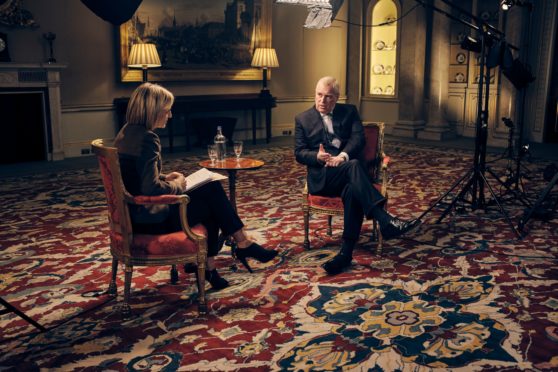It has been described widely as the PR car crash of the century – Prince Andrew’s out-of-control navigation of the communication highway.
There he was, a careering drunk driver, lurching from one side of the road to the other, eyes wide in places, like a startled child who turned the key of his daddy’s Porsche and found the accelerator but not the brake pedal.
Rather than averting our eyes, perhaps we should now examine the wreckage and the casualties. As far as I could see, there was only one body still breathing – journalism.
A recent 50th anniversary celebration of The Sun newspaper invited readers to choose their favourite front page in its history. The winner was the infamous “Freddie Starr ate my hamster”, a piece of black comedy from 1986 that claimed comedian Freddie Starr ate a hamster sandwich.
No matter that he later admitted the story was fake, the British public, it seems, don’t mind their front pages – or their prime ministers for that matter – being outed as liars, as long as they are also eccentrically funny in a buffoonish kind of way. What larks, Pip!
But Newsnight’s Emily Maitlis reminded us of the real purpose of journalism and why it’s important for democracy. While the nation might tune in to the Andrew interview for pretty much the same reason they buy a copy of The Sun, or watch an episode of Coronation Street (a bit of harmless, soapy-sudded gossip and light entertainment) Maitlis’s impeccable annihilation of her subject illustrated a more weighty purpose – holding power, wealth and privilege to account.
Looking back, I realise how naive I was in pre-journalism days. The state was benign, church was at least moral if not always holy, charities were headed by good guys and organisations were bound by publicly recognised ethical regulations. It is important to be aware without being cynical, but despite due regard for objectivity, I have to say that I now realise the state will collude with whomever it is expedient to do so, there is no abuse worse than the self-protective abuses of the church, charity bosses are as full of human frailty as anyone else, and many publicly recognised ethical regulations are not worth the paper they are written on. Were it not for the media, we would know even less about all that than we do.
Journalism has been a wounded beast for some time, quite rightly criticised for its sometimes dirty methods with phone tapping, its consistent lack of compassion, and its volatile relationship with truth. It’s good to be reminded that there is also a serious purpose and a professional approach to interviewing that is about public accountability.
Journalism, then, emerges alive from the wreckage, but what of the dead and dying? First up: Royalty. The corpse may be twitching, but surely privilege based on birthright can’t go on forever. It must, at least, change form. If the prince was Andrew Smith from Woking (where the prince took his daughters to such a memorable Pizza Express that he remembers it almost 20 years later) there would not be such circumspect examination of his frailties. “Forgive me for asking, your Royal Highness….”
Whether guilty or innocent, what comes across in Andrew is such a deeply ingrained sense of entitlement to “service”, and a careless disregard of how it is achieved, that a gaggle of underage girls in the prince’s “friend’s” house causes no unease. Oh, and the foot massage just comes free with the bottle of Bolly.
The interview was trumpeted as an unprecedented royal scoop (leaving aside Diana, who will not be bested on that one) because a member of the royal family was actually being held to account. And why shouldn’t he be when it involves the abuse of underage girls? The fact Andrew felt he HAD to give the interview suggests things are changing. Media speculation wasn’t disappearing (unlike the prince’s perspiration which, he says, disappeared – temporarily – after he was shot at in the Falklands, a hero prince!). No longer can royalty simply dismiss the peasants while milking their connections and sponging on prostrate pop stars and dissolute billionaires. And hooray for that.
Second up: Public relations. There is a tiresome expectation now that everything can be “managed”, the truth buried under a carefully constructed facade that the public swallow like a paracetamol to take away any nasty stuff. As a fledgling journalist, I struggled with the idea that anyone could look me in the eye and lie. It was a fast growing-up process. People lie with alarming alacrity. Including powerful people. Including the media. We really need to stop swallowing Freddy Starr’s hamster and then asking for more.
So, amen for the dead and bless the journalistic phoenix rising.
Come to think of it, there is one other victor in all this – Pizza Express, Woking. It has been inundated with online reviews. One reviewer had pizza in 2001 and remembers it vividly because there was a guy eating pizza with chillies who didn’t break sweat. Wonder if there was any chopped hamster on it?











